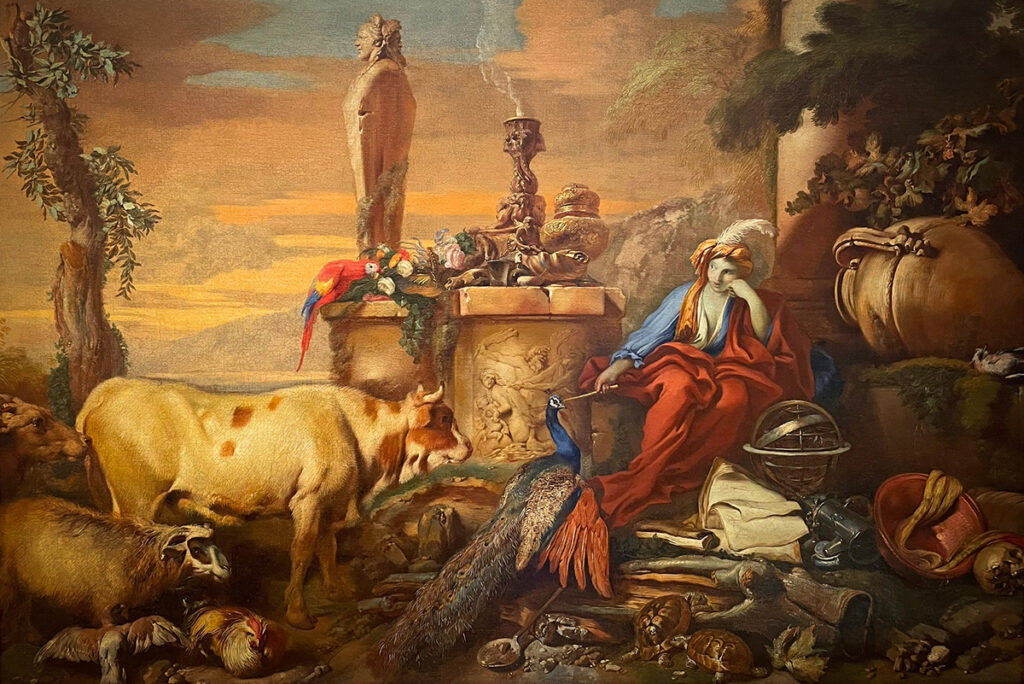Numerous examples of prophetic usage originate from meaning within the Psalms, as illustrated in the reading this week. There are numerous connections from the Psalms to the prophets and the gospel writers. An example comes to mind concerning Psalm 22.
As Psalm 22 is widely known as a messianic, and it is prophetically echoed in the life of Christ and what He accomplished, as made evident by the Apostle Matthew (Matt 27:32-55). The psalm wasn’t originally about the crucifixion of Jesus, but it certainly carried prophetic weight and meaning at the time of the crucifixion (i.e., the already but not yet principle of prophecy). Specifically, Psalm 22 projects forward a later reference to the prophet Amos concerning the “cows of Bashan” or bovines of Bashan (Amos 4:1-2). Psalm 22:12-13 reads as follows:
12Many bulls encompass me; strong bulls of Bashan surround me;
13they open wide their mouths at me, like a ravening and roaring lion.
The prophetic implication from Amos 4:1-2 is compared as follows:
1“Hear this word, you cows of Bashan, who are on the mountain of Samaria, who oppress the poor, who crush the needy, who say to your husbands, ‘Bring, that we may drink!’
2The Lord God has sworn by his holiness that, behold, the days are coming upon you, when they shall take you away with hooks, even the last of you with fishhooks.
The prophet Amos much later than the time of David (author of Ps 22) is a reference back to the bulls of Bashan from the mountains of Samaria. That is, by implication, the “cows of Bashan” are of the mountains of Samaria (cultic area of Caesarea-Philippi, Mt Hermon, region of Dan) who were temple priestesses who served “the gods” as deities in the form of idols or golden calves. The “gods” reference, who oppressed the poor and needy (Ps 82:4), is likely a source that informed the prophet Amos concerning judgment to befall Israel because of their worship of demonic entities (Deut 32:1). The prophet Amos recognized the association between the territory of Bashan and demonic activity related to idolatry.

Fast forward to the first century and second temple period, as Jesus was surrounded by the “Bulls of Bashan,” Matthew knew of what David wrote of the demonic entities who were many that surrounded Him. They opened wide their anthropomorphic mouths at Him during His execution (Ps 22:13). The bulls of Bashan intertextually connect back to both Amos and the messianic psalm with integrated meaning around the cultural and historical evil present in Northern Israel. In my view, this was the reason Christ’s transfiguration with prophets Moses and Elijah took place on Mt Hermon to reclaim humanity and bring the Kingdom of God to Earth right before His crucifixion in Jerusalem. Mt Hermon is in Bashan, and Jesus knew who the bulls of Bashan were. He knew of Israel’s history of demon worship.
The death of Jesus on the cross is of further meaning from Psalm and Amos as it is written concerning the work He accomplished to overcome sin and death. The spiritual entities present at the time of His crucifixion were prophesied in the text of Psalm 22 and in plain sight for the connections made with sufficient research. Further in the reading of Psalm 22, and from materials the psalmists and prophets read, the inference is that the bulls of Bashan were the sons of God referenced in Ps 82:1. The text insinuates that connections are carefully made between the psalms and prophets. However, it takes more than just passive reading to originate those connections. – Further reading into Psalm 22, who were the dogs referenced in Ps 22:16? Who were the Roman soldiers who crucified Jesus? Gentiles. Gentiles in Jewish culture are referred to as “dogs.” The personified connections made throughout the psalm for prophetic inference toward later use permit the reader to make connections not otherwise apparent.
These are the type of connections made throughout the psalms and the prophets. This time, about elohim as disembodied dead, spiritual powers (Eph 6:12), and the sons of God, or watchers/angels that the prophet Daniel wrote about (Dan 4:13-17). Further substantive meaning concerning the Son of Man (Daniel’s cloud rider), divine transgressions, and so forth at length is steeped in material that the poets and prophets were certainly aware of.














